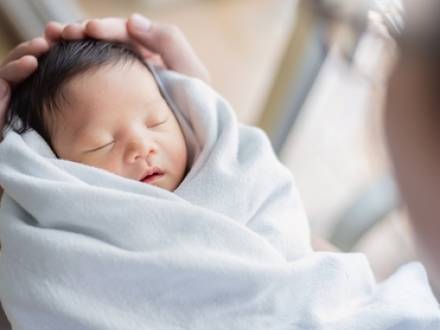Recent Blog Posts
Can I Be Forced to Sell My Home in an Illinois Divorce?
 Most people are aware that divorcing couples need to divide their assets, but if you have never been divorced before, it can be hard to imagine everything that entails. Splitting money in a shared account and dividing stocks and bonds might seem straightforward, but when it comes to deciding what to do with your home, it can quickly become much more complicated.
Most people are aware that divorcing couples need to divide their assets, but if you have never been divorced before, it can be hard to imagine everything that entails. Splitting money in a shared account and dividing stocks and bonds might seem straightforward, but when it comes to deciding what to do with your home, it can quickly become much more complicated.
You may feel strongly about keeping your home, especially if your children have grown up there and you are their primary caretaker. Unfortunately, a judge can force you to sell your home during divorce, even if you object. Illinois courts have broad authority to divide marital property in whatever they consider to be a fair way. That includes ordering the sale of the home, if that is the fairest way to divide assets between spouses. To understand more about what might happen to your home in a divorce, speak with a qualified Chicago, IL divorce lawyer who can answer your questions and offer valuable insights.
Can a Divorce Judge Order a Business Valuation Even If Both Spouses Agree on Value?
 When two spouses in Illinois agree on the value of a business during divorce, they may assume that’s the end of it. After all, if neither party is disputing the number, why would the court get involved?
When two spouses in Illinois agree on the value of a business during divorce, they may assume that’s the end of it. After all, if neither party is disputing the number, why would the court get involved?
But under Illinois law, the judge has the authority, and in many cases the obligation, to question that valuation and even order a formal business appraisal, particularly when financial complexity, ownership interest, or the potential for future disputes are at play. Even a couple’s agreement can be overridden in the interest of equitable division.
This issue is especially relevant in divorces involving family businesses, professional practices, or self-owned enterprises. It is also an area where a Cook County, IL divorce attorney like Attorney Ross with financial credentials — such as a CPA, Court-appointed guardian ad litem (GAL), and mediator — can make all the difference.
Can I Stop or Undo My Illinois Divorce?
 Filing for divorce is a monumental decision, and some people think they have made up their minds only to later discover that they are having second thoughts. What happens if you regret the decision to get divorced, not just emotionally, but legally? Can you stop the process once it starts? Can you undo a divorce after it is finalized?
Filing for divorce is a monumental decision, and some people think they have made up their minds only to later discover that they are having second thoughts. What happens if you regret the decision to get divorced, not just emotionally, but legally? Can you stop the process once it starts? Can you undo a divorce after it is finalized?
In Illinois, the answer depends on where you are in the legal process. Timing, paperwork, and cooperation between spouses all play a role. A trained Illinois divorce attorney and mediator — especially one at The Law Offices of Curtis Bennett Ross, L.L.C. with financial insight and decades of family law experience — can help you navigate the possibilities.
Can You Stop a Divorce Before It Is Finalized?
If the divorce is still in progress and has not been finalized by the judge, it is entirely possible to stop the process. The spouse who filed the petition can choose to dismiss the case voluntarily. If both spouses now want to remain married, this is typically a straightforward procedure.
What Are the Components of Parental Responsibilities in Illinois?
 Arguably, the most emotionally charged part of an Illinois divorce is often the allocation of parental responsibilities, commonly known as child custody. Understanding the nuanced laws that govern the court’s decisions and outline your rights as a parent is critical. It ensures that you approach the process confidently, and a knowledgeable Skokie, IL parental responsibilities attorney can help.
Arguably, the most emotionally charged part of an Illinois divorce is often the allocation of parental responsibilities, commonly known as child custody. Understanding the nuanced laws that govern the court’s decisions and outline your rights as a parent is critical. It ensures that you approach the process confidently, and a knowledgeable Skokie, IL parental responsibilities attorney can help.
What Are Decision-Making Responsibilities in an Illinois Custody Case?
In Illinois, "parental responsibilities" is an umbrella phrase encompassing the allocation of decision-making rights and parenting time, formerly known as legal custody and visitation, respectively. The decision-making component is divided into four categories:
-
Decisions about education, including learning support services
-
Management of healthcare, including choosing providers and insurance
Why Do I Have to Divide My Retirement Savings if I Get Divorced?
 If you are getting a divorce, the idea of splitting your hard-earned retirement savings with your spouse might feel frustrating and even unfair – especially if your spouse did not work as hard as you have or did not work at all. You may have spent decades contributing to a 401(k) or pension, only to find that it is now considered marital property and your spouse is likely to walk away with a significant portion. In Illinois, this outcome is not unusual.
If you are getting a divorce, the idea of splitting your hard-earned retirement savings with your spouse might feel frustrating and even unfair – especially if your spouse did not work as hard as you have or did not work at all. You may have spent decades contributing to a 401(k) or pension, only to find that it is now considered marital property and your spouse is likely to walk away with a significant portion. In Illinois, this outcome is not unusual.
Understanding why complex financial issues like dividing retirement savings are such a major part of divorce can help you approach the process more strategically. Our Chicago asset division attorney understands your frustrations and can work with you to ensure your financial future is protected as fairly as possible.
Legal Separation vs. Divorce in Illinois
 When a couple starts to question the future of their relationship, taking action can be scary. Often, people jump straight to divorce without knowing that legal separation is an option. Others simply do not know the difference between the two. Understanding your options is vital to ensuring you make an informed decision, and an experienced Illinois divorce attorney can help.
When a couple starts to question the future of their relationship, taking action can be scary. Often, people jump straight to divorce without knowing that legal separation is an option. Others simply do not know the difference between the two. Understanding your options is vital to ensuring you make an informed decision, and an experienced Illinois divorce attorney can help.
Legal Differences Between Separation and Divorce
Under a legal separation, you and your spouse can separate your lives very similar to how you would in a divorce. This typically includes dividing assets from the marriage, such as real estate, bank, and retirement accounts; working out support payments just as you would during divorce proceedings; and setting up a child custody arrangement.
The key difference between legal separation and divorce is that there is no dissolution of the marriage. You are not technically divorced and marrying someone else would not be legally possible.
Can My Child Choose Which Parent to Live With in Illinois?
 When parents divorce or separate, determining child custody can be one of the most emotional and challenging aspects of the process. Many parents and children wonder whether the child gets a say and can influence the court's decision. Illinois law does allow a child's opinion to be considered, although there are important factors that parents should understand about how courts handle these situations. To learn more about these considerations, speak with a qualified Illinois family law attorney.
When parents divorce or separate, determining child custody can be one of the most emotional and challenging aspects of the process. Many parents and children wonder whether the child gets a say and can influence the court's decision. Illinois law does allow a child's opinion to be considered, although there are important factors that parents should understand about how courts handle these situations. To learn more about these considerations, speak with a qualified Illinois family law attorney.
Does Illinois Allow the Child to Choose Which Parent to Live With?
Illinois courts prioritize the best interests of the child when making custody decisions, which are legally referred to as the allocation of parental responsibilities and parenting time. The child's wishes can be taken into account, but they are not the only factor that is considered.
What Happens if My Ex Violates Our Custody Agreement in Illinois?
 When a custody agreement is reached and court-approved in Illinois, both parents are legally obligated to follow its terms. If your ex violates your custody order, it can create stress and confusion, and harm you as well as your child. Fortunately, Illinois law offers several options for enforcing custody agreements and protecting your parental rights. To find out more, speak with a qualified Illinois family lawyer who can explain the various strategies and offer valuable guidance.
When a custody agreement is reached and court-approved in Illinois, both parents are legally obligated to follow its terms. If your ex violates your custody order, it can create stress and confusion, and harm you as well as your child. Fortunately, Illinois law offers several options for enforcing custody agreements and protecting your parental rights. To find out more, speak with a qualified Illinois family lawyer who can explain the various strategies and offer valuable guidance.
How Can a Parent Violate a Custody Arrangement?
As we all know, life does not always go as planned, and unexpected things can happen that force us to adjust. Unmarried parents with shared parental responsibilities need to keep that in mind. For example, if one parent is stuck in traffic and running a few minutes late to drop the child off with the other parent, or one becomes sick with a fever and cannot manage to pick the child up according to the agreed schedule, it would not typically be considered a valid time to seek court intervention.
How Can a Court-Appointed Financial Expert Help Your Illinois Divorce?
 When you realize you are headed toward a divorce, you might feel overwhelmed before the process even begins. Hiring the right professional to advise you and be by your side throughout can make a big difference in your entire experience.
When you realize you are headed toward a divorce, you might feel overwhelmed before the process even begins. Hiring the right professional to advise you and be by your side throughout can make a big difference in your entire experience.
Going through a divorce can be overwhelming financially just as much as emotionally. In Illinois, issues like property division, spousal support, and child support often involve complex financial matters, and some people find that they would appreciate consulting with a Certified Public Accountant (CPA) or a court-appointed financial expert. At The Law Offices of Curtis Bennett Ross, L.L.C., our Illinois divorce lawyer is also a court-appointed financial expert and a CPA, and the legal guidance he can offer is invaluable.
What Does a Court-Appointed Financial Expert Do?
A court will typically appoint a financial expert to a divorce case when financial matters that can impact the proceedings need to be assessed and given an impartial analysis. Whether clarification is needed for the division of assets, spousal support, or other monetary disputes, their knowledge can significantly streamline decisions.
Do I Have Any Options if the Father Refuses to Acknowledge Our Baby?
 Sometimes, two people meet, fall in love, get married, and have a baby, and the path they take as a family is fairly straightforward. However, for many people, reality does not follow that pattern. Many children are raised only by their mother and her family. Some mothers do not know who the father is, some refuse to tell the child who it is, and in some cases, everyone involved knows who both parents are, but the father is uninterested in having any involvement. If your child’s father is unwilling to acknowledge the role he plays in your child’s life, speak with an experienced Chicago, IL family law attorney about your options regarding paternity.
Sometimes, two people meet, fall in love, get married, and have a baby, and the path they take as a family is fairly straightforward. However, for many people, reality does not follow that pattern. Many children are raised only by their mother and her family. Some mothers do not know who the father is, some refuse to tell the child who it is, and in some cases, everyone involved knows who both parents are, but the father is uninterested in having any involvement. If your child’s father is unwilling to acknowledge the role he plays in your child’s life, speak with an experienced Chicago, IL family law attorney about your options regarding paternity.
How is Paternity Established in Illinois?
Paternity, or the legal recognition of a father, can be established whether or not the father is willing to acknowledge his role in the child’s life.

 312-984-1514
312-984-1514

